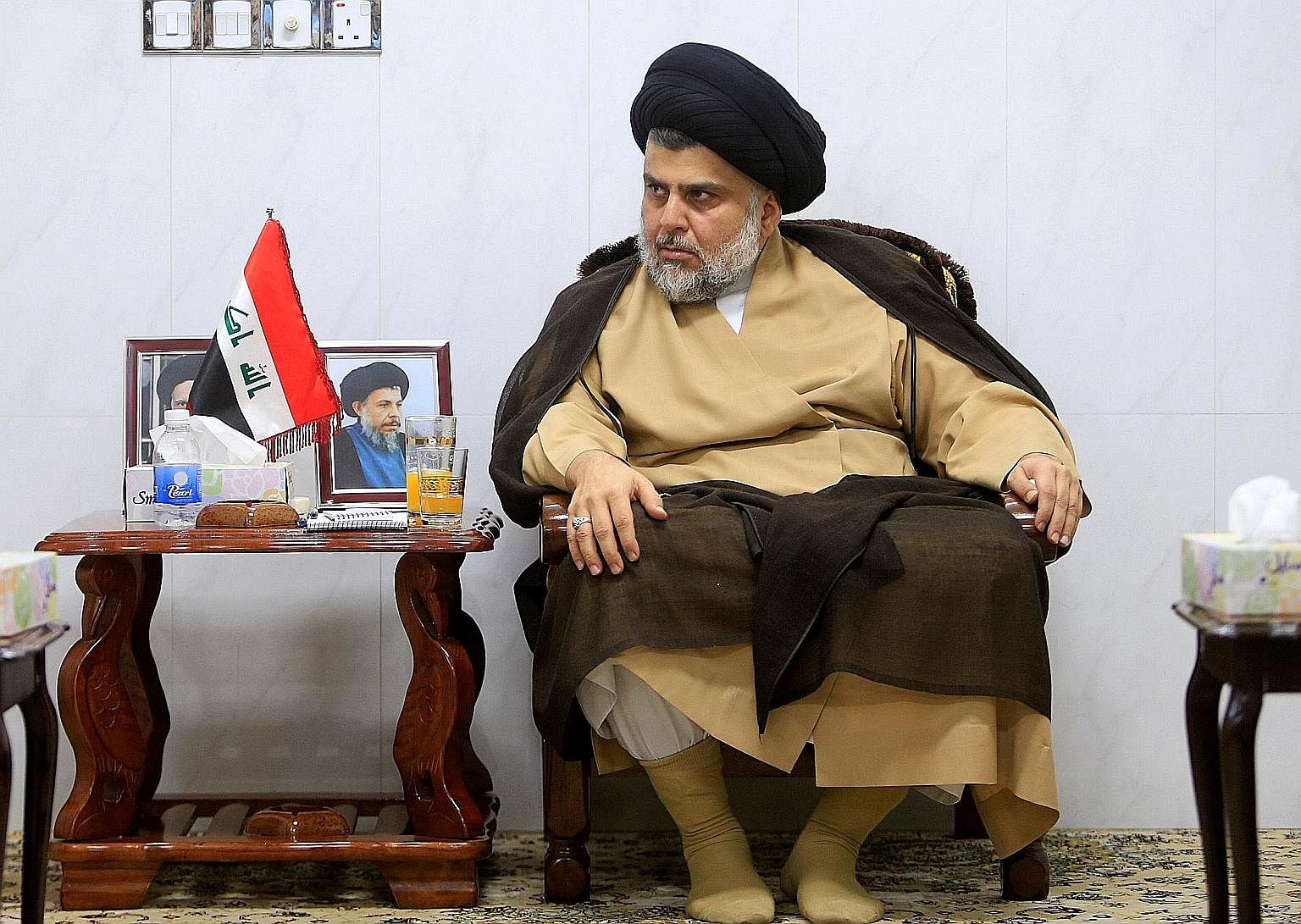BAGHDAD • A political bloc led by populist cleric Moqtada al-Sadr, a long-time adversary of the United States who also opposes Iranian influence in Iraq, has won the country's parliamentary election, the electoral commission said yesterday.
But the possibilities for alliances to form a coalition government remain wide open, as none of the three leading groups won a majority in the 329-seat Parliament in the May 12 vote.
The election also saw record high abstentions with just 44.52 per cent turnout - the lowest since the first multiparty elections in 2005.
Mr Sadr himself cannot become prime minister as he did not run in the election, though his bloc's victory puts him in a position to have a strong say in negotiations. His Sairoon electoral list captured 54 parliamentary seats.
The Al-Fatih bloc led by Mr Hadi al-Amiri, who has close ties with Iran and heads an umbrella group of paramilitaries that played a key role in defeating the Islamic State in Iraq and Syria, came in second with 47 seats.
The Victory Alliance, headed by incumbent Prime Minister Haider al-Abadi, took third place with 42.
"Your vote is an honour for us," Mr Sadr tweeted moments after the official results were announced early yesterday morning. "We will not disappoint you."

Negotiations to form a government are expected to drag on for months. Iranian Major General Qassem Soleimani, commander of foreign operations for Iran's elite Revolutionary Guards and a highly influential figure, has been holding talks with politicians to promote the formation of a new Cabinet which would have Iran's approval.
Mr Sadr, who made his name leading two violent uprisings against US occupation troops, was sidelined for years by Iranian-backed rivals. His bloc's performance was a rebuke to a political elite some voters blame for widespread corruption and dysfunctional governance.
Mr Sadr's unlikely alliance with communists and secular Iraqis says it fiercely opposes any foreign interference in Iraq, which is strongly backed by Teheran and Washington. It has promised to help the poor and build schools and hospitals in Iraq, which was battered in the war to defeat ISIS and has suffered from low oil prices.
Before the election, Iran publicly stated it would not allow Mr Sadr's bloc to govern. Mr Abadi could still emerge as a compromise candidate because he has skilfully managed the competing interests of the US and Iran - unwitting allies in the war against ISIS .
Earlier yesterday, Mr Sadr met ambassadors from neighbouring countries, including Turkey, Jordan, Syria, Kuwait and Saudi Arabia, when he called for a strengthening of ties with states which have "historical and cultural ties with Iraq", according to a statement from his office.
REUTERS, AGENCE FRANCE-PRESSE
